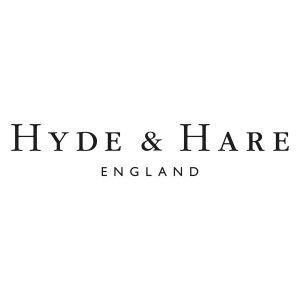EORI vs IOSS. What is the difference?
EORI and IOSS are two different systems used for international trade within the European Union (EU).
A lot of our clients trade from the UK into Europe and beyond.
When the explanation of the trading details required to seamlessly send goods through customs to other countries the subject of duty payments, UN numbers and commodity codes as well as EORI vs IOSS registration becomes more complex than it needs to be. Here's a detailed explanation of each:
EORI (Economic Operators Registration and Identification):
EORI is an identification number used for customs purposes. It stands for "Economic Operators Registration and Identification" and is issued by the customs authorities of EU member states. The EORI number is required for businesses engaged in import and export activities within the EU. It serves as a unique identifier for economic operators, enabling customs authorities to track and monitor their movements across borders. The EORI number is used in customs declarations and other relevant documentation to ensure proper customs control and facilitate trade. It is applicable for both goods and services.
Key points about EORI:
EORI numbers are issued by individual EU member states' customs authorities.
It is required for businesses involved in import and export activities within the EU.
EORI numbers are unique identifiers for economic operators.
It is used in customs declarations and other relevant documents.
IOSS (Import One-Stop Shop):
IOSS is a simplified VAT (Value Added Tax) system introduced by the EU for the collection and reporting of VAT on cross-border sales of goods to customers within the EU. It is primarily designed to simplify the VAT obligations for e-commerce businesses. The IOSS scheme allows businesses to collect, declare, and pay the VAT on goods sold to customers in the EU in a single monthly return, instead of registering for VAT in multiple EU member states. The IOSS scheme applies to goods imported from outside the EU with a value not exceeding €150. By using the IOSS, businesses can streamline their VAT compliance processes and provide a better customer experience.
Key points about IOSS:
IOSS is a simplified VAT system for cross-border sales of goods within the EU.
It simplifies VAT obligations for e-commerce businesses.
It allows businesses to collect, declare, and pay VAT on goods sold in the EU in a single monthly return.
It applies to goods imported from outside the EU with a value not exceeding €150.
In summary, EORI is an identification number used for customs purposes, while IOSS is a simplified VAT system for cross-border sales of goods within the EU. EORI is broader in scope and applicable to all import and export activities, whereas IOSS specifically focuses on simplifying VAT compliance for e-commerce businesses selling goods within the EU.
EORI and IOSS are two different systems used for international trade within the European Union (EU). Here's a detailed explanation of each:
EORI (Economic Operators Registration and Identification):
EORI is an identification number used for customs purposes. It stands for "Economic Operators Registration and Identification" and is issued by the customs authorities of EU member states. The EORI number is required for businesses engaged in import and export activities within the EU. It serves as a unique identifier for economic operators, enabling customs authorities to track and monitor their movements across borders. The EORI number is used in customs declarations and other relevant documentation to ensure proper customs control and facilitate trade. It is applicable for both goods and services.
Key points about EORI:
EORI numbers are issued by individual EU member states' customs authorities.
It is required for businesses involved in import and export activities within the EU.
EORI numbers are unique identifiers for economic operators.
It is used in customs declarations and other relevant documents.
IOSS (Import One-Stop Shop):
IOSS is a simplified VAT (Value Added Tax) system introduced by the EU for the collection and reporting of VAT on cross-border sales of goods to customers within the EU. It is primarily designed to simplify the VAT obligations for e-commerce businesses. The IOSS scheme allows businesses to collect, declare, and pay the VAT on goods sold to customers in the EU in a single monthly return, instead of registering for VAT in multiple EU member states. The IOSS scheme applies to goods imported from outside the EU with a value not exceeding €150. By using the IOSS, businesses can streamline their VAT compliance processes and provide a better customer experience.
Key points about IOSS:
IOSS is a simplified VAT system for cross-border sales of goods within the EU.
It simplifies VAT obligations for e-commerce businesses.
It allows businesses to collect, declare, and pay VAT on goods sold in the EU in a single monthly return.
It applies to goods imported from outside the EU with a value not exceeding €150.
In summary, EORI is an identification number used for customs purposes, while IOSS is a simplified VAT system for cross-border sales of goods within the EU. EORI is broader in scope and applicable to all import and export activities, whereas IOSS specifically focuses on simplifying VAT compliance for e-commerce businesses selling goods within the EU.
How do I apply for an IOSS number as a UK business owner?
To apply for an IOSS (Import One-Stop Shop) number as a UK business owner, you can follow these steps:
Verify eligibility: Ensure that you meet the requirements to register for IOSS. IOSS is applicable if you sell goods valued at or below €150 to customers in the European Union (EU) from a non-EU country.
Register for VAT in the EU: If you are not already registered for VAT in an EU country, you will need to register for VAT in one of the EU member states. You can choose any member state, but it is recommended to select a country where you have significant sales or plan to have a distribution centre.
Appoint an intermediary (optional): As a non-EU business, you have the option to appoint an intermediary to handle your IOSS registration and compliance. The intermediary can be an EU-established business or a tax representative.
Gather required documentation: Prepare the necessary documentation for the IOSS registration. This typically includes:
Proof of identity: Provide identification documents for the business owner or authorized representative.
Proof of establishment: Submit documents confirming your business's establishment in the UK.
VAT registration documents: Include the VAT registration certificate obtained in step 2.
Complete the IOSS registration: The IOSS registration process varies slightly between EU member states. However, the general steps involve:
Access the IOSS registration portal of the chosen EU member state.
Fill out the registration form, providing your business details, VAT information, and other required information.
Upload the supporting documentation as requested.
Submit the application.
Await confirmation: After submitting the application, the tax authorities of the EU member state will review your registration. If everything is in order, you will receive your IOSS number.
Update your systems: Once you have received your IOSS number, update your systems and e-commerce platforms to include the number on the invoices and customs declarations for eligible sales to the EU.
Ensure compliance: Ensure that you comply with the IOSS regulations, such as collecting and reporting VAT correctly, filing regular returns, and maintaining records of transactions.
It's worth noting that IOSS is just one of the mechanisms available for VAT compliance when selling goods to the EU. You may also consider alternative options such as utilizing the customs procedures or using an EU-based fulfilment centre. Consulting with a tax advisor or expert with knowledge of EU VAT regulations is advisable to determine the best approach for your specific business situation.
We have so much to give!
Keeping it simple and efficient.
We guarantee a same day dispatch of your goods.

WE STORE
Securely and efficiently in our heated Warehouse
Our warehouse is our own, We have a large space able to securely store pallets, boxes and goods on pick/pack bays ready for your customers to order. Come and see us.

WE PACK
Contract Packing or Order Fulfilment. We are ready!
Daily order processing or contract packing projects, we work with them all. Receiving orders from all sales channels we can pick/pack and dispatch the same day of order regardless of volumes.

WE DISPATCH
Any size of consignment, anywhere in the world.
Our teams work with all packing suppliers as well as the National Couriers, Royal Mail and Pallet Networks all day every day. Talk to them about how to ship your orders securely and efficiently.
Need help getting your packaging right?
We store hundreds of different types of packaging from padded envelopes and postal boxes to mailer bags and larger boxes. We can help you choose the right eco-friendly and sustainable filler options from starch loose fill, air sacs, to branded brown paper fill.
Our suppliers can brand tape for you and produce branded boxes if you need them. Let's work together to get your customers' shipments delivered safely and in style.

Your 3PL Ecommerce Fulfilment, Distribution Centre and Contract Packing partner. Planned, Integrated, Packed and Delivered.
T: 01242 802140
CBF Fulfilment
1-11 Alvin Street
Gloucester
GL1 3EJ
UNITED KINGDOM







